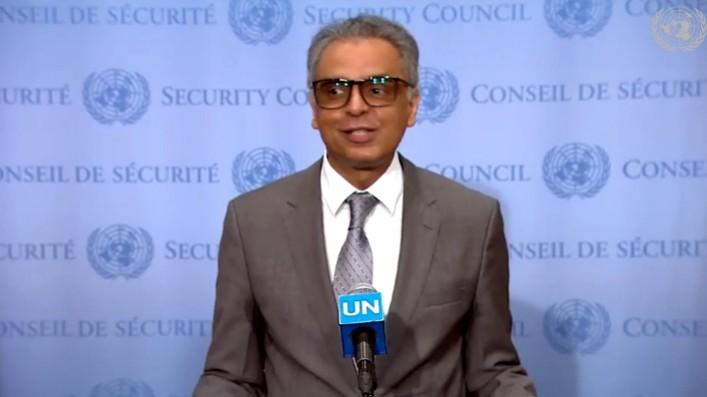
The UN Security Council in its informal consultation on Kashmir on Friday acknowledged India's measures to bring normalcy and development to the Union Territory of Jammu and Kashmir, said India's Permanent Representative Syed Akbaruddin.
Speaking to reporters after the meeting, Akbaruddin said India's "position was and remains that matters pertaining to Article 370 are entirely an internal matter of India. These have no external ramifications.
"The recent decision taken by the Government of India and our legislative bodies are intended to ensure that good governance is promoted, socio-economic development is enhanced for our people in Jammu and Kashmir and Ladakh," he said, referring to the revocation of special status for Kashmir and bifurcation of the state into the Union Territories of J&K and Ladakh.
"You are aware that the Chief Secretary of Jammu and Kashmir announced a whole set of measures that the government is undertaking to move towards normalcy," he said, referring to the announcement by Chief Secretary BVR Subrahmanyam that schools would be reopened, and that all restrictions would be eased soon.
Referring to the results of the closed door consultations, he said: "We are gratified that the UNSC in its closed consultations appreciated these efforts, acknowledged them, and indicated that this is the direction that it would like the international community to move. We are committed to gradually removing all the restrictions."
Referring to the objections of China and Pakistan, he said: "Since the change is internal to India, it has not made any difference to our external orientation. India remains committed to ensure that the situation there remains calm and peaceful."
The Council met Friday morning for about an hour in a closed-door consultation at the request of China. In the format of the informal consultation, it was held without public access.
Council President Joanna Wronecka did not speak to the media or issue any advisory about the meeting.
Akbaruddin also said that after the end of the closed consultations "we noted that two states that made national statements tried to pass them off as the will of the international community".
He said that the UNSC is a "very deliberative institution. It works in a very considered manner. Its outcomes are provided to all of us through the president."
He said that since some were trying to masquerade national statements as the will of the international community, he was there to explain India's national position.
The Indian envoy also said that some were trying to project an alarmist situation in Kashmir to propagate their ideology, referring to Pakistan.
Slamming Pakistan, which has been trying to whip up passions over Kashmir, he said: "Of particular concern is that one state is using terminology of jihad against and promoting violence in India, including by their leaders. Violence is no solution to the problems that all of us face. We are committed to and consistent in our previous position that all issues between India and Pakistan as well as India and any other country will be resolved bilaterally, peacefully and in a manner that behoves normal inter-state relations between countries.
"We are saddened that terrorism is being fuelled, incendiary language and talk of jihad is being mentioned by people who should know better. We stand ready to continue our efforts towards peaceful resolution of all issues in an atmosphere free of terrorism and violence," he said.














